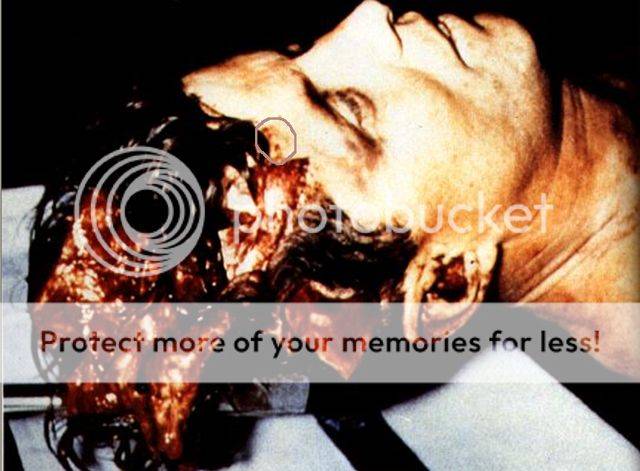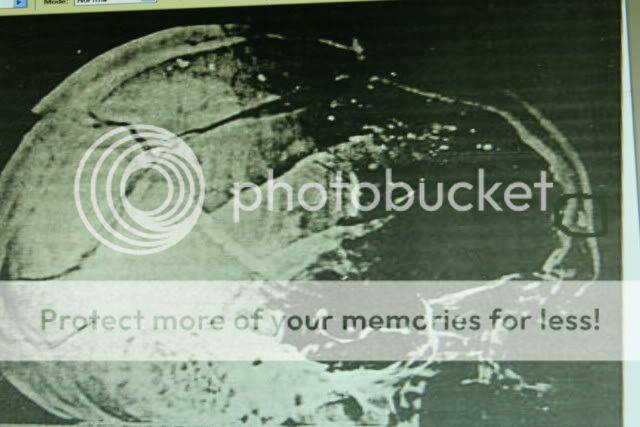Bfgrn
Gold Member
- Apr 4, 2009
- 16,829
- 2,496
- 245
The mother of all coverups
Four decades later, the Warren Report is widely regarded as a whitewash, with polls consistently showing that a majority of Americans reject the official version of Kennedys death. (The Assassination Archives and Research Center will hold a conference to discuss the latest scholarship on the crime in Dallas and the Warren investigation from Sept. 17-19 in Washington. Information is available on its Web site.
But there is one sanctuary where the Warren Report is still stubbornly upheld and where its manifold critics can expect their own rough treatment: in the towers of the media elite. Fresh from assaulting Oliver Stone, not only for his film but for his very character (a media shark attack in which, I must confess, I too once engaged), the national press rushed to embrace Gerald Posners bold 1993 defense of the Warren Report, Case Closed, making it a bestseller. (The most convincing explanation of the assassination, historian Robert Dallek called it in the Boston Globe.) And the 40th anniversary of JFKs murder last November sparked a new fusillade of anti-conspiracy sound and fury, with ABCs Peter Jennings making yet another network news attempt to silence the reports critics. Most of the press lords and pundits in the 1960s who allowed themselves to be convinced that the Warren Report was the correct version of what happened in Dallas whether because they genuinely believed it or because they thought it was for the good of the country are now dead or retired. But after buying the official version for so long, it seems the elite media institutions have too much invested in the Warren Report to change their minds now, even if theyre under new editorial leadership.
One of the great ironies of history is that while the media elite was busily trying to shore up public confidence in the Warren Report, the political elites were privately confiding among themselves that the report was a travesty, a fairy tale for mass consumption. Presidents, White House aides, intelligence officials, senators, congressmen, even foreign leaders they all muttered darkly among themselves that Kennedy was killed by a conspiracy, a plot that a number of them suspected had roots in the U.S. government itself. (In truth, some high media dignitaries have also quietly shared their doubts about the official version. In 1993, CBS anchorman Dan Rather, who did much along with his network to enforce the party line on Dallas, confessed to Robert Tannenbaum, the former deputy chief counsel of the House Select Committee on Assassinations, We really blew it on the Kennedy assassination.)
Thanks to tapes of White House conversations that have been released to the public in recent years, we now know that the man who appointed the Warren Commission President Lyndon Johnson did not believe its conclusions. On Sept. 18, 1964, the last day the panel met, commission member Sen. Richard Russell phoned Johnson, his old political protégé, to tell him he did not believe the single-bullet theory, the key to the commissions finding that Oswald acted alone. I dont either, Johnson told him.
Johnsons theories about what really happened in Dallas shifted over the years. Soon after the assassination, Johnson was led to believe by the CIA that Kennedy might have been the victim of a Soviet conspiracy. Later his suspicions focused on Castro; during his long-running feud with Robert Kennedy, LBJ leaked a story to Washington columnist Drew Pearson suggesting the Kennedy brothers themselves were responsible for JFKs death by triggering a violent reaction from the Cuban leader with their goddamned Murder Inc. plots to kill him.
In 1967, according to a report in the Washington Post, Johnsons suspicious gaze came to rest on the CIA. The newspaper quoted White House aide Marvin Watson as saying that Johnson was now convinced Kennedy was the victim of a plot and that the CIA had something to do with this plot. Max Holland, who has just published a study of LBJs views on Dallas, The Kennedy Assassination Tapes, intriguingly concludes that Johnson remained haunted by the murder throughout his tenure in the White House. It is virtually an article of faith among historians that the war in Vietnam was the overwhelming reason the president left office in 1969, a worn, bitter, and disillusioned man, writes Holland. Yet the assassination-related tapes paint a more nuanced portrait, one in which Johnsons view of the assassination weighed as heavily on him as did the war.
Four decades later, the Warren Report is widely regarded as a whitewash, with polls consistently showing that a majority of Americans reject the official version of Kennedys death. (The Assassination Archives and Research Center will hold a conference to discuss the latest scholarship on the crime in Dallas and the Warren investigation from Sept. 17-19 in Washington. Information is available on its Web site.
But there is one sanctuary where the Warren Report is still stubbornly upheld and where its manifold critics can expect their own rough treatment: in the towers of the media elite. Fresh from assaulting Oliver Stone, not only for his film but for his very character (a media shark attack in which, I must confess, I too once engaged), the national press rushed to embrace Gerald Posners bold 1993 defense of the Warren Report, Case Closed, making it a bestseller. (The most convincing explanation of the assassination, historian Robert Dallek called it in the Boston Globe.) And the 40th anniversary of JFKs murder last November sparked a new fusillade of anti-conspiracy sound and fury, with ABCs Peter Jennings making yet another network news attempt to silence the reports critics. Most of the press lords and pundits in the 1960s who allowed themselves to be convinced that the Warren Report was the correct version of what happened in Dallas whether because they genuinely believed it or because they thought it was for the good of the country are now dead or retired. But after buying the official version for so long, it seems the elite media institutions have too much invested in the Warren Report to change their minds now, even if theyre under new editorial leadership.
One of the great ironies of history is that while the media elite was busily trying to shore up public confidence in the Warren Report, the political elites were privately confiding among themselves that the report was a travesty, a fairy tale for mass consumption. Presidents, White House aides, intelligence officials, senators, congressmen, even foreign leaders they all muttered darkly among themselves that Kennedy was killed by a conspiracy, a plot that a number of them suspected had roots in the U.S. government itself. (In truth, some high media dignitaries have also quietly shared their doubts about the official version. In 1993, CBS anchorman Dan Rather, who did much along with his network to enforce the party line on Dallas, confessed to Robert Tannenbaum, the former deputy chief counsel of the House Select Committee on Assassinations, We really blew it on the Kennedy assassination.)
Thanks to tapes of White House conversations that have been released to the public in recent years, we now know that the man who appointed the Warren Commission President Lyndon Johnson did not believe its conclusions. On Sept. 18, 1964, the last day the panel met, commission member Sen. Richard Russell phoned Johnson, his old political protégé, to tell him he did not believe the single-bullet theory, the key to the commissions finding that Oswald acted alone. I dont either, Johnson told him.
Johnsons theories about what really happened in Dallas shifted over the years. Soon after the assassination, Johnson was led to believe by the CIA that Kennedy might have been the victim of a Soviet conspiracy. Later his suspicions focused on Castro; during his long-running feud with Robert Kennedy, LBJ leaked a story to Washington columnist Drew Pearson suggesting the Kennedy brothers themselves were responsible for JFKs death by triggering a violent reaction from the Cuban leader with their goddamned Murder Inc. plots to kill him.
In 1967, according to a report in the Washington Post, Johnsons suspicious gaze came to rest on the CIA. The newspaper quoted White House aide Marvin Watson as saying that Johnson was now convinced Kennedy was the victim of a plot and that the CIA had something to do with this plot. Max Holland, who has just published a study of LBJs views on Dallas, The Kennedy Assassination Tapes, intriguingly concludes that Johnson remained haunted by the murder throughout his tenure in the White House. It is virtually an article of faith among historians that the war in Vietnam was the overwhelming reason the president left office in 1969, a worn, bitter, and disillusioned man, writes Holland. Yet the assassination-related tapes paint a more nuanced portrait, one in which Johnsons view of the assassination weighed as heavily on him as did the war.



 They couldn't see much until someone picked up his head.
They couldn't see much until someone picked up his head.





